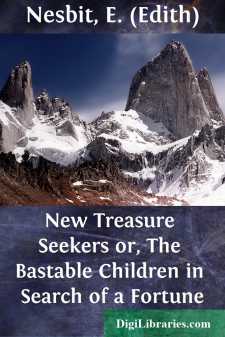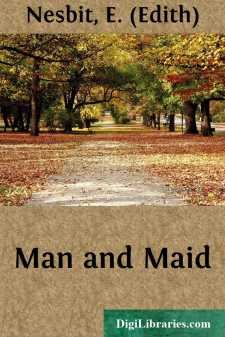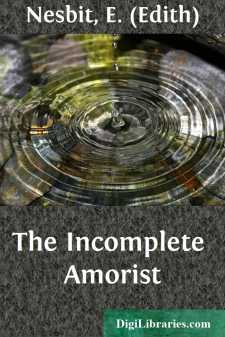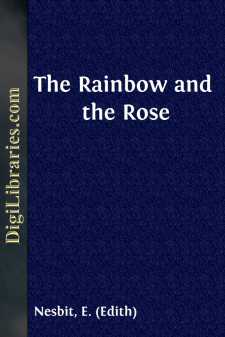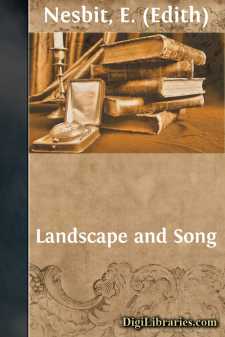Categories
- Antiques & Collectibles 13
- Architecture 36
- Art 48
- Bibles 22
- Biography & Autobiography 813
- Body, Mind & Spirit 142
- Business & Economics 28
- Children's Books 14
- Children's Fiction 11
- Computers 4
- Cooking 94
- Crafts & Hobbies 4
- Drama 346
- Education 46
- Family & Relationships 57
- Fiction 11829
- Games 19
- Gardening 17
- Health & Fitness 34
- History 1377
- House & Home 1
- Humor 147
- Juvenile Fiction 1873
- Juvenile Nonfiction 202
- Language Arts & Disciplines 88
- Law 16
- Literary Collections 686
- Literary Criticism 179
- Mathematics 13
- Medical 41
- Music 40
- Nature 179
- Non-Classifiable 1768
- Performing Arts 7
- Periodicals 1453
- Philosophy 64
- Photography 2
- Poetry 896
- Political Science 203
- Psychology 42
- Reference 154
- Religion 513
- Science 126
- Self-Help 84
- Social Science 81
- Sports & Recreation 34
- Study Aids 3
- Technology & Engineering 59
- Transportation 23
- Travel 463
- True Crime 29
E. (Edith) Nesbit
Edith Nesbit (1858-1924) was a prolific English author and poet, best known for her children's literature. She co-founded the Fabian Society, a socialist organization, and her works often reflect her political beliefs. Nesbit's most famous books include "The Railway Children," "Five Children and It," and "The Story of the Treasure Seekers," which have remained beloved classics for their imaginative storytelling and relatable child characters.
Author's Books:
Sort by:
THE ROAD TO ROME; OR, THESILLY STOWAWAYWeBastables have only two uncles, and neither of them, are our own natural-born relatives. One is a great-uncle, and the other is the uncle from his birth of Albert, who used to live next door to us in the Lewisham Road. When we first got to know him (it was over some baked potatoes, and is quite another story) we called him Albert-next-door's-Uncle, and then...
more...
I THE HAUNTED INHERITANCE The most extraordinary thing that ever happened to me was my going back to town on that day. I am a reasonable being; I do not do such things. I was on a bicycling tour with another man. We were far from the mean cares of an unremunerative profession; we were men not fettered by any given address, any pledged date, any preconcerted route. I went to bed weary and cheerful, fell...
more...
CHAPTER I. THE INEVITABLE. "No. The chemises aren't cut out. I haven't had time. There are enough shirts to go on with, aren't there, Mrs. James?" said Betty. "We can make do for this afternoon, Miss, but the men they're getting blowed out with shirts. It's the children's shifts as we can't make shift without much longer." Mrs. James, habitually...
more...
CHAPTER 1. THE EGG It began with the day when it was almost the Fifth of November, and a doubt arose in some breast—Robert's, I fancy—as to the quality of the fireworks laid in for the Guy Fawkes celebration. 'They were jolly cheap,' said whoever it was, and I think it was Robert, 'and suppose they didn't go off on the night? Those Prosser kids would have something to...
more...
THE THINGS THAT MATTER. NOW that I've nearly done my days, And grown too stiff to sweep or sew, I sit and think, till I'm amaze, About what lots of things I know: Things as I've found out one by one— And when I'm fast down in the clay, My knowing things and how they're done Will all be lost and thrown away. There's things, I know, as...
more...
LONDON:HENRY J. DRANE & CO.Paternoster Row E.C. New York: E.P. Dutton & Co. I. What dreams the flower cups enfold Within their fragrant leaves, Of meadow-ways grown fair with spring, Soft mists that April...
more...
A MIDSUMMER NIGHT'S DREAM Hermia and Lysander were lovers; but Hermia's father wished her to marry another man, named Demetrius. Now, in Athens, where they lived, there was a wicked law, by which any girl who refused to marry according to her father's wishes, might be put to death. Hermia's father was so angry with her for refusing to do as he wished, that he actually brought her...
more...
CHAPTER 1. THE JUNGLE Children are like jam: all very well in the proper place, but you can't stand them all over the shop—eh, what?' These were the dreadful words of our Indian uncle. They made us feel very young and angry; and yet we could not be comforted by calling him names to ourselves, as you do when nasty grown-ups say nasty things, because he is not nasty, but quite the exact...
more...
CHAPTER 1. THE COUNCIL OF WAYS AND MEANS This is the story of the different ways we looked for treasure, and I think when you have read it you will see that we were not lazy about the looking. There are some things I must tell before I begin to tell about the treasure-seeking, because I have read books myself, and I know how beastly it is when a story begins, "'Alas!" said Hildegarde with...
more...
Chapter I. The beginning of things. They were not railway children to begin with. I don't suppose they had ever thought about railways except as a means of getting to Maskelyne and Cook's, the Pantomime, Zoological Gardens, and Madame Tussaud's. They were just ordinary suburban children, and they lived with their Father and Mother in an ordinary red-brick-fronted villa, with coloured...
more...


